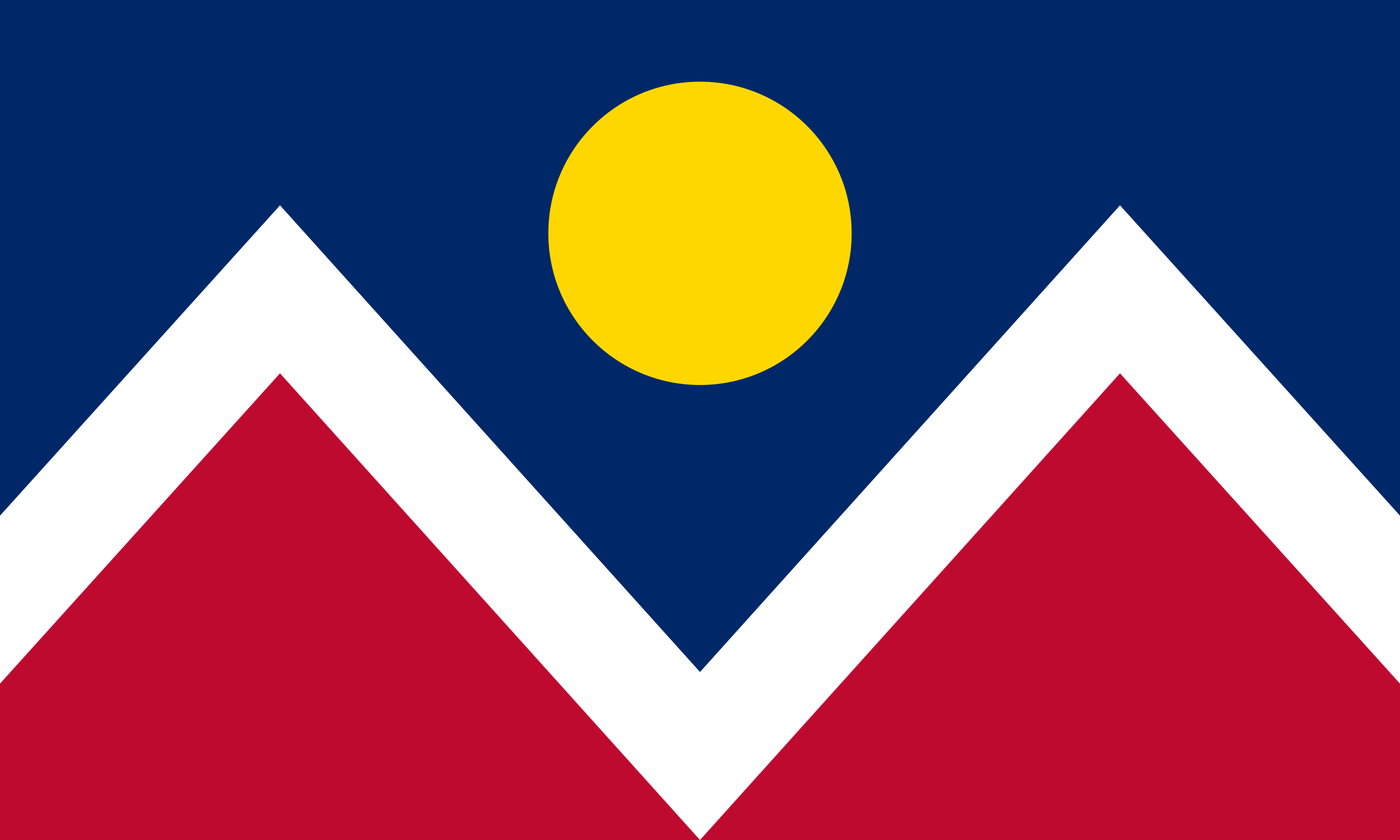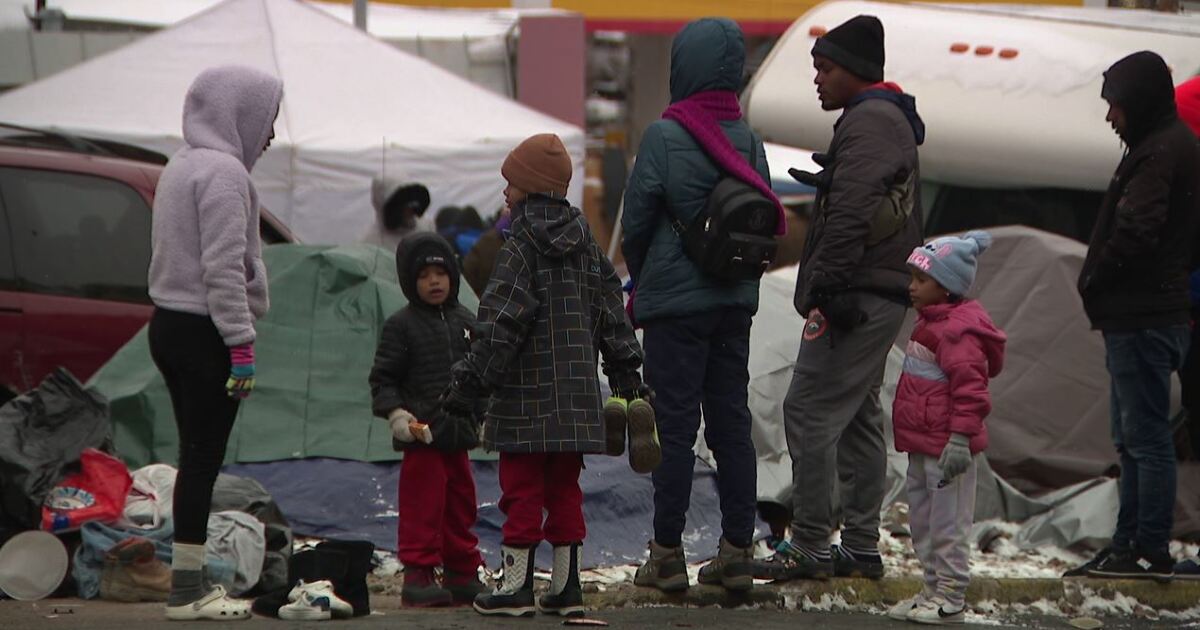Many migrants, including families, are living on the streets of Denver after reaching the stay limit at city shelters.
Freiman Esescorcia and his wife, Naidelis, are from Columbia and Venezuela respectively. They arrived in Denver about a month ago.
The couple found shelter at a hotel on Speer Boulevard and Zuni Street in Denver’s Highland neighborhood. But their time at the shelter is close to an end.
“We’ve been in Denver approximately a month — that’s the time they’ve given us to stay here," said Freiman in Spanish. “When your time is up, they kick you out. There’s no help when you get out.”
In October, the city adjusted the length of time migrants can stay in city shelters due to an “unprecedented” influx. Adult migrants without children can stay at a shelter for 14 days, while arriving migrants with children can stay at a shelter for 37 days.
Naidelis is seven months pregnant. The couple is worried they will end up on the streets with their newborn baby.
“A lot of people outside who have been kicked out, they have nowhere to go. So they’re out here with these temperatures. It’s concerning because there’s kids and pregnant women like her,” said Freiman.
The father-to-be is urging the city to do more to help. He said not being able to afford a work permit has been a big obstacle.
“I bet you, if they help all of these people get work permits, you wouldn’t see all of this out here,” Freiman said. “We’re simply asking for help. We know how to work.”
The city said it has not forced anyone out in the last week due to the cold temperatures. Denver also activated two overnight shelters Friday — the New Directions Ballroom on Quebec Street, which is the former Best Western Hotel, and the Denver Coliseum. Both locations will be open from 7 p.m. to 7 a.m. Friday through Sunday.
Buses are available to take people to overnight shelters from the Saint Francis Center on Curtis Street between 6:30 p.m. and 9 p.m. each night.
Earlier this month, Denver Mayor Mike Johnston, along with the mayors of Chicago, Houston, Los Angeles and New York, sent a letter to President Joe Biden asking for federal help to manage the surge of migrants that are arriving.
“Our cities need additional resources that far exceed the amount proposed in order to properly care for the asylum seekers entering our communities," the letter said. "Relying on municipal budgets is not sustainable and has forced us to cut essential city services.”
The mayors also asked Biden for an accelerated work authorization approval process so migrants can find work.
According to the city’s dashboard, 84 migrants arrived in Denver Friday, and 137 arrived Thursday. The city has served a total of 28,161 migrants, according to the dashboard. In its weekly update, the city said it has spent $32 million to shelter and support arriving migrants.
Here’s how you can help refugees and immigrants coming to Denver
If you’d like to help as the city responds to this migrant crisis, you can do so with donations – either material or monetary. If opting for the former, the city is asking for the following items:
- Socks (new/unopened only)
- Bras - small/medium/large
- Women’s clothing - small/medium/large
- Men’s clothing - small/medium
- Winter hats - gender neutral and kids/one size fits all
- Winter gloves - men’s, women’s and kids/small and medium sizes
- Scarves - various sizes
Those items can be dropped off at the Richard T. Castro Human Services Center, 1200 N. Federal Blvd. from 9 a.m. to 3:30 p.m., Monday through Friday.
The city is asking that you do not just drive there and drop off donations at the main entrance. Instead, you’re asked to call to schedule your donations drop-off at (303) 514-0643.



If you choose to donate, please remember that a massive party of staying warm is staying dry. If you get boots, gloves, or coats please look for ones that are water proof.
This migrant community is newer than the other camps in Denver and many of them have no experience on the streets in winter, so they are likely not acquainted with the best ways of staying warm. Every year unhoused people’s tents get burned down in winter from trying to survive. Simple quality gear is an easy way to help prevent that.